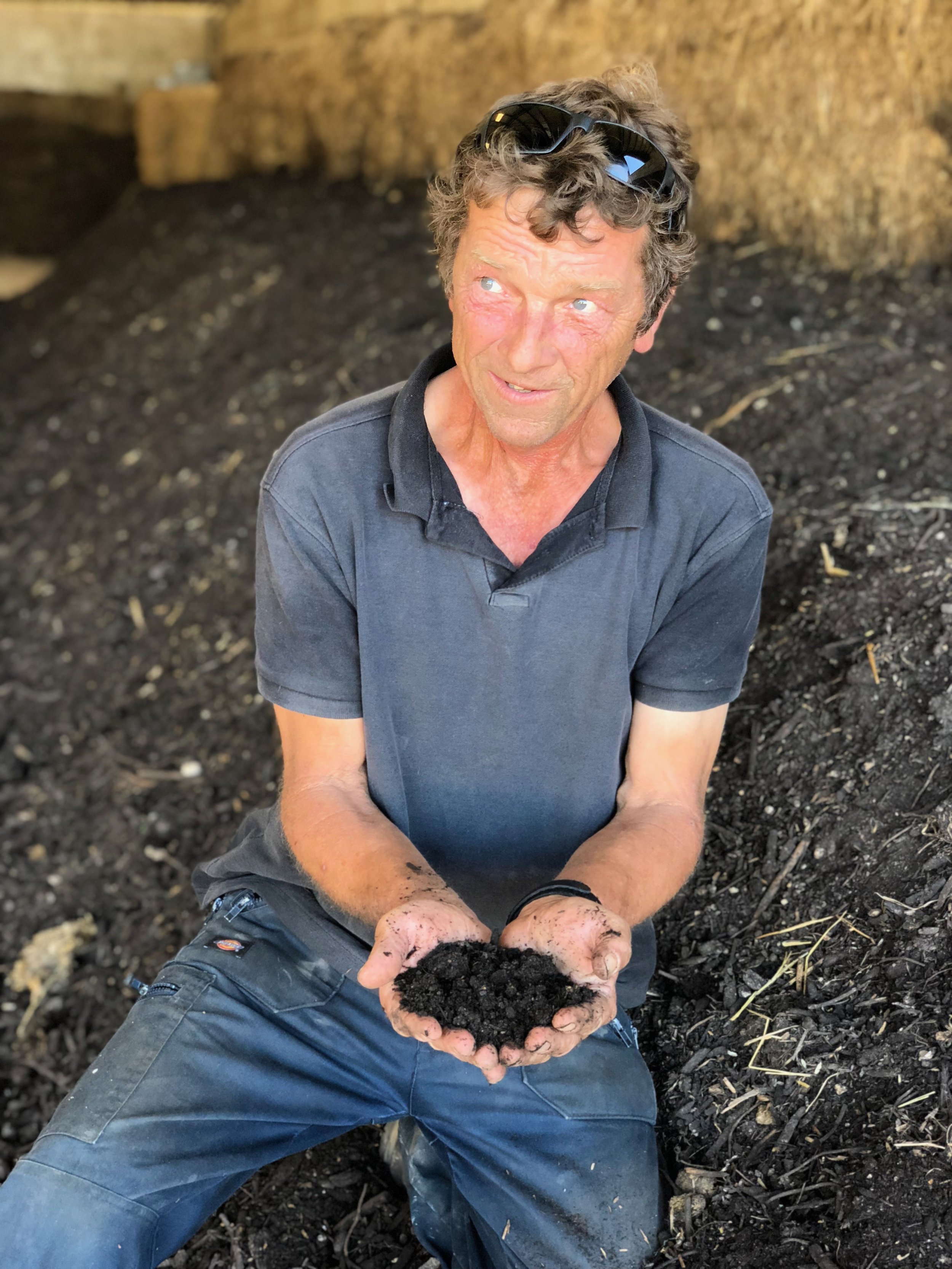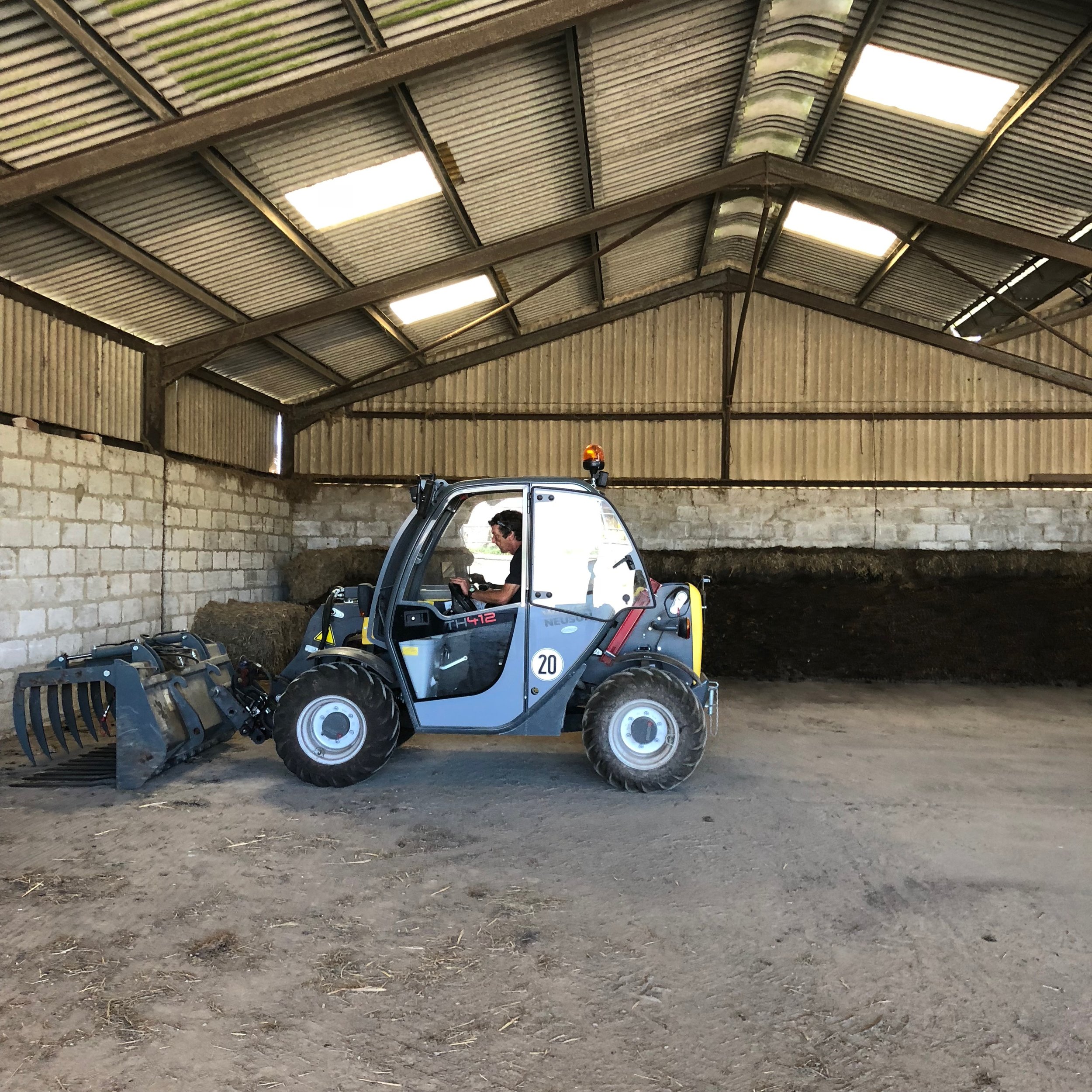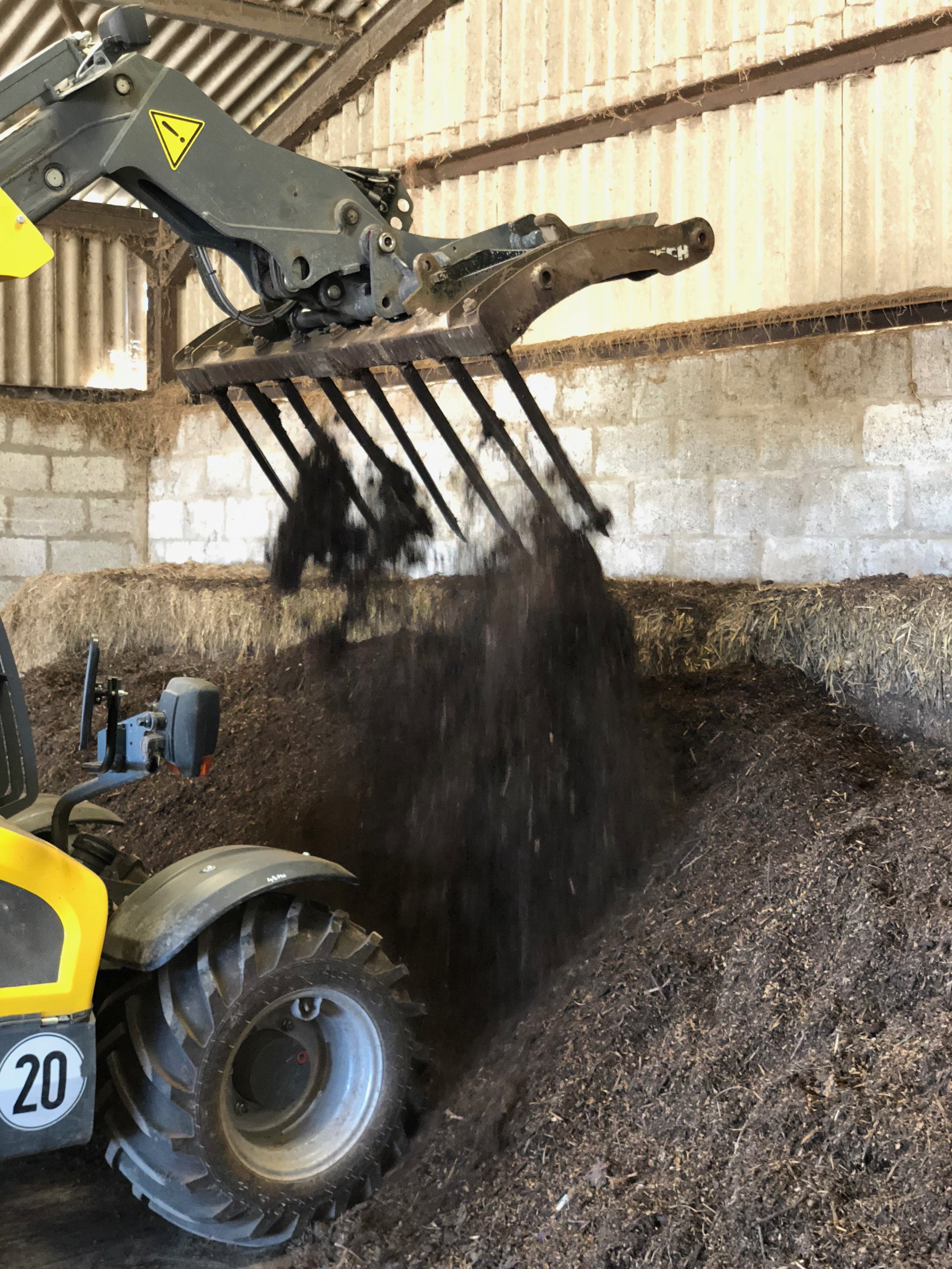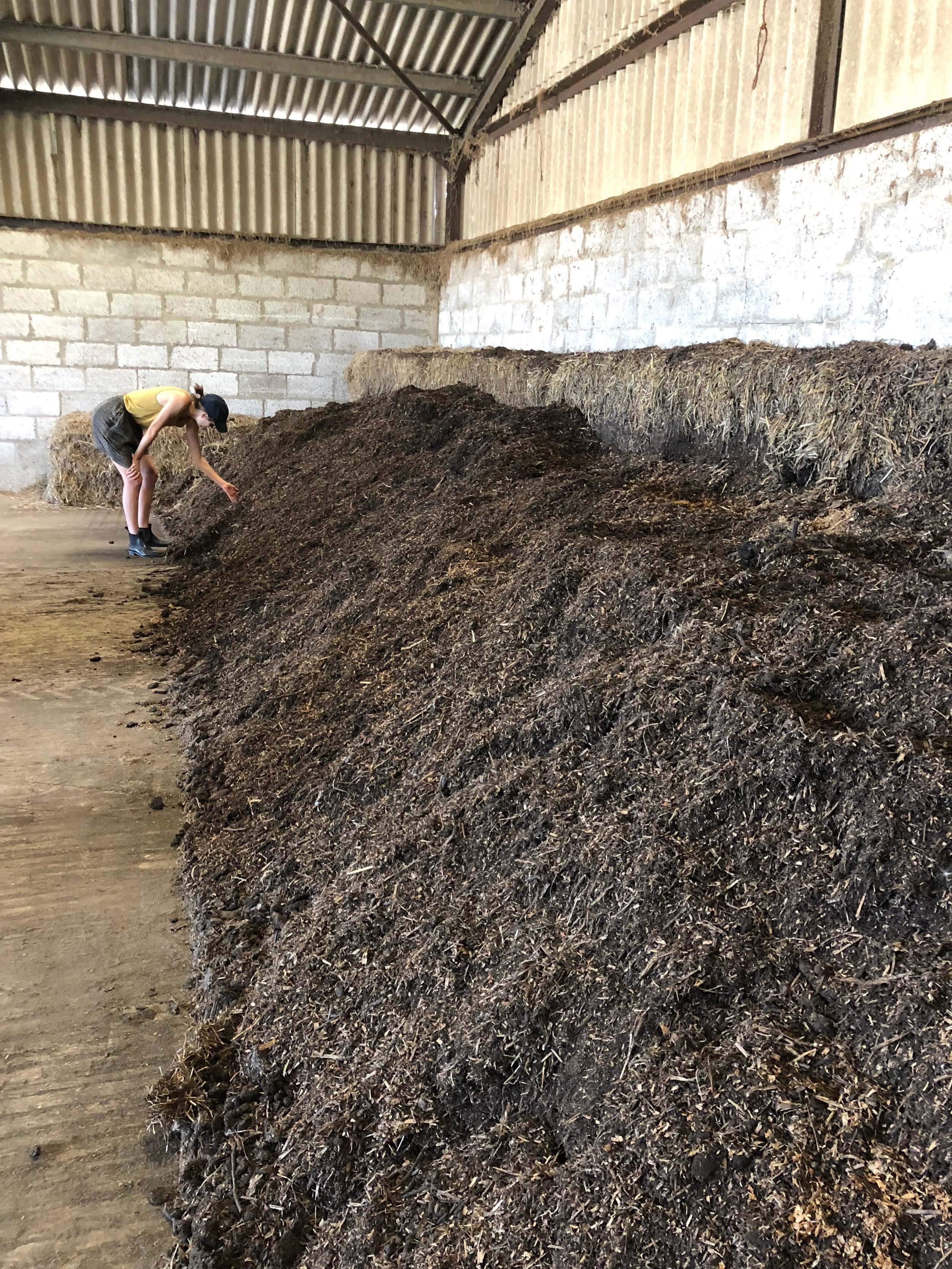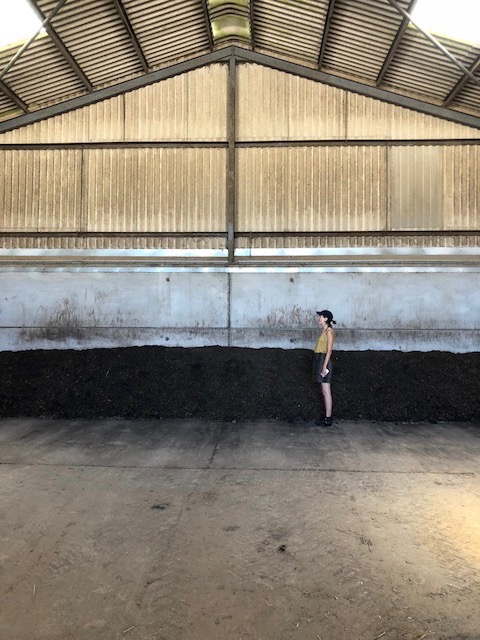Sophie Alexander - dorset, uk
On Hemsworth Farm in Dorset, Sophie Alexander is composting with open windrows to help maintain the nutrient balance of her 430-hectare organic farm. The farm is arable: growing winter/spring wheat, malting barley, winter/spring oats and spring beans. There are approximately 500 young organic dairy heifers on the farm on a grazing licence and the over winter cover crops are grazed by sheep.
Having found that her compost tea trials used prohibitive quantities of water and that it was logistically complicated using contractors to spray compost tea, Sophie decided to start making her own compost and spreading it directly onto the fields.
Sophie started following the Leubke composting method and became one of our Innovative Field Trialists.
The windrows are made inside open barns which means they retain moisture better and are not as influenced by the wind, rain or the outside temperature. There is also no need to lift covers on and off.
Using a ratio of 30 parts carbon to 1 part nitrogen the windrows are built up with alternative carbon/nitrogen layers. Most ingredients come from the farm including straw and shavings from the livery yard (carbon), grass clippings, nettles, horse and cow manure, (essentially nitrogen) and the addition of 10-20% imported green waste form a private composter (primarily carbon) 10% soil/clay aggregate from areas surrounding farm ponds is added, and the pile is inoculated with matured compost from an old pile and watered using untreated water from a bore hole.
The temperature of the windrows is measured and then turned using a Wacker Neuson 412 (mini zippy loader) when the temperature reaches 60+ degrees centigrade. The advantage of the Wacker Neuson is its flexibility (as it can be used for other jobs on the farm).
Each windrow is approximately 40 cubic metres (approximately 30 tonnes).
The composting process is complete within 7-8 weeks and then generally stockpiled until an appropriate time to spread with a muck spreader. There are various options; either just before spring drilling or Sophie is now planning to spread between 15 and 30 tonnes per hectare on 2nd year herbal leys in the Autumn.
